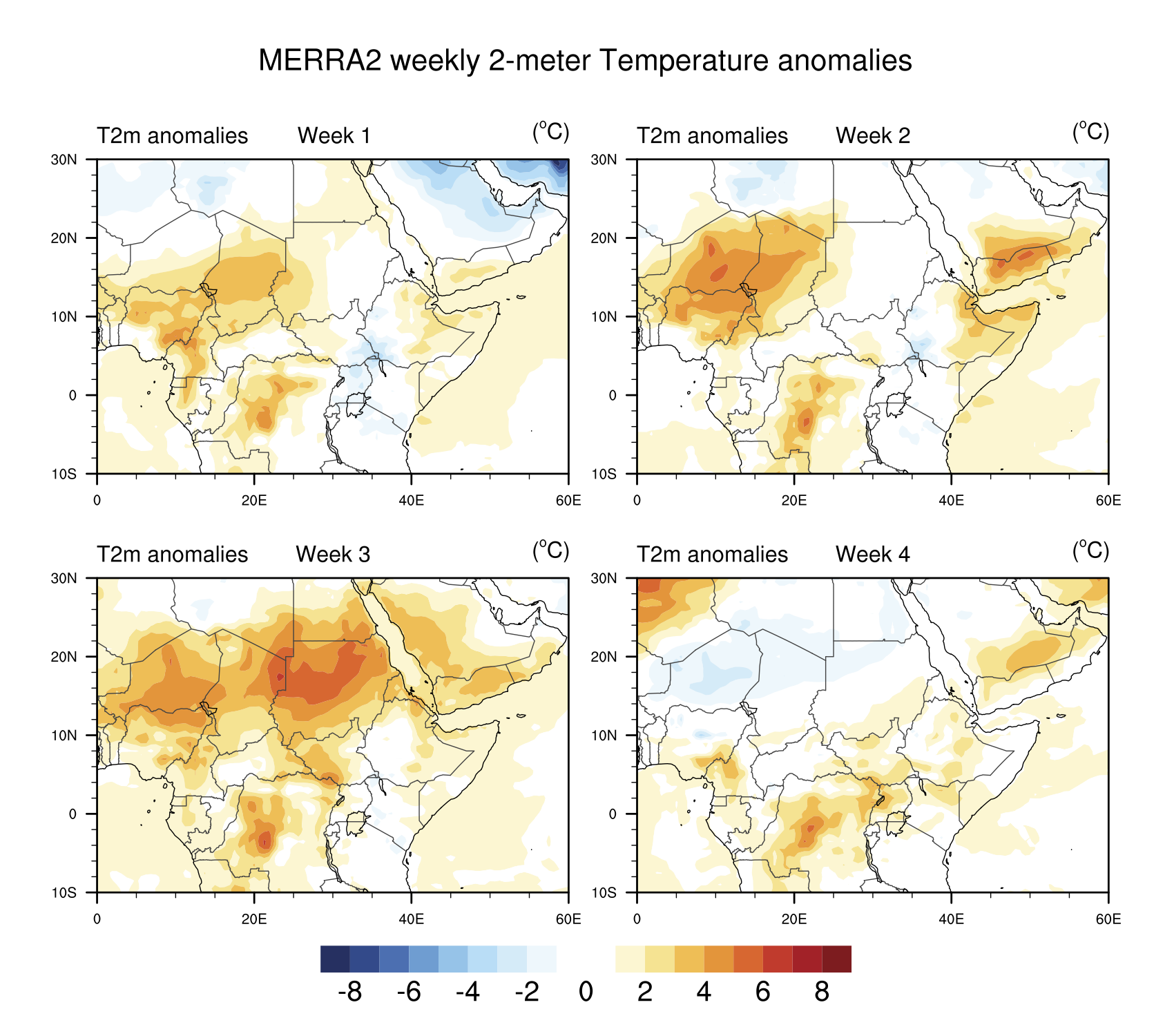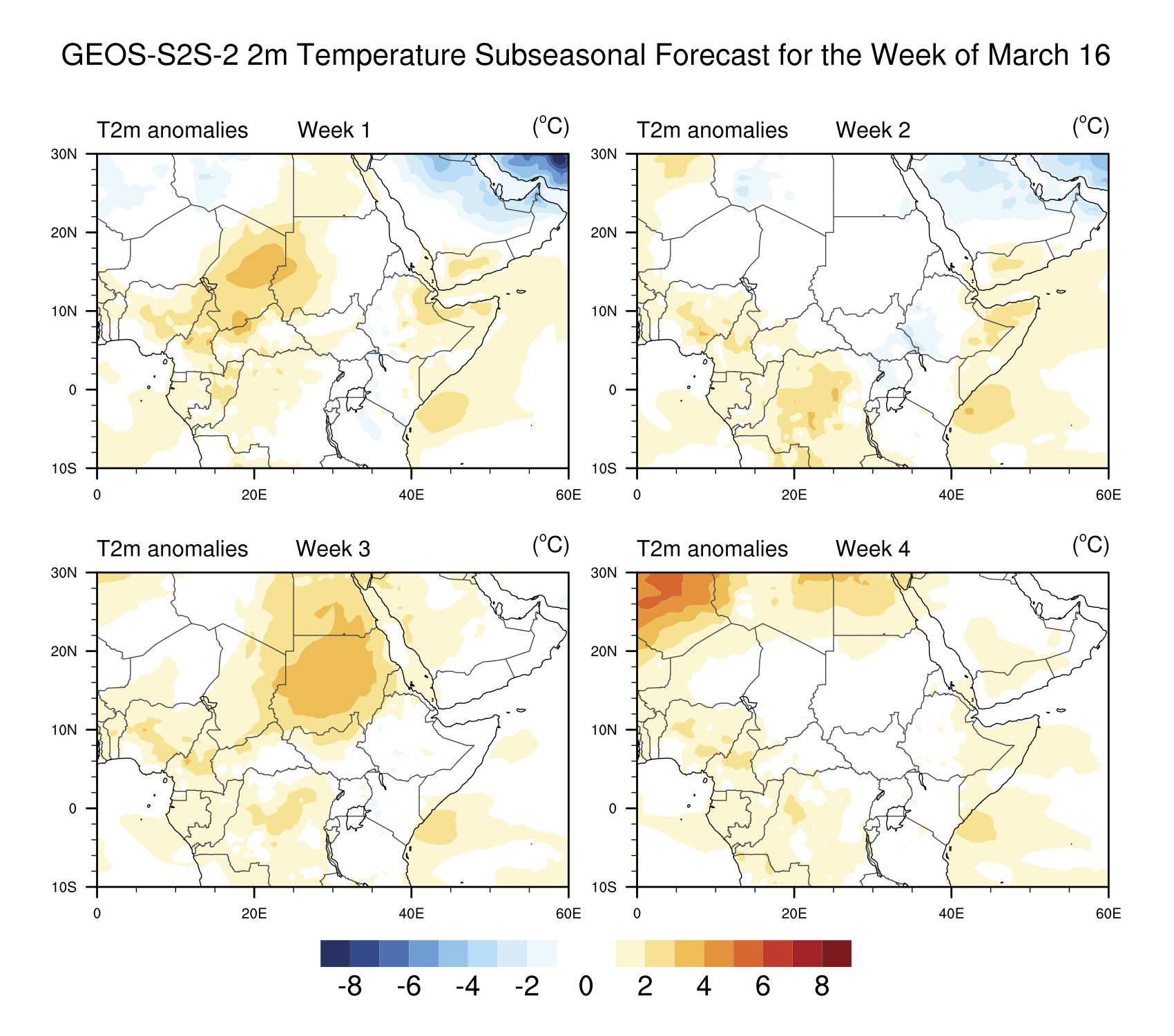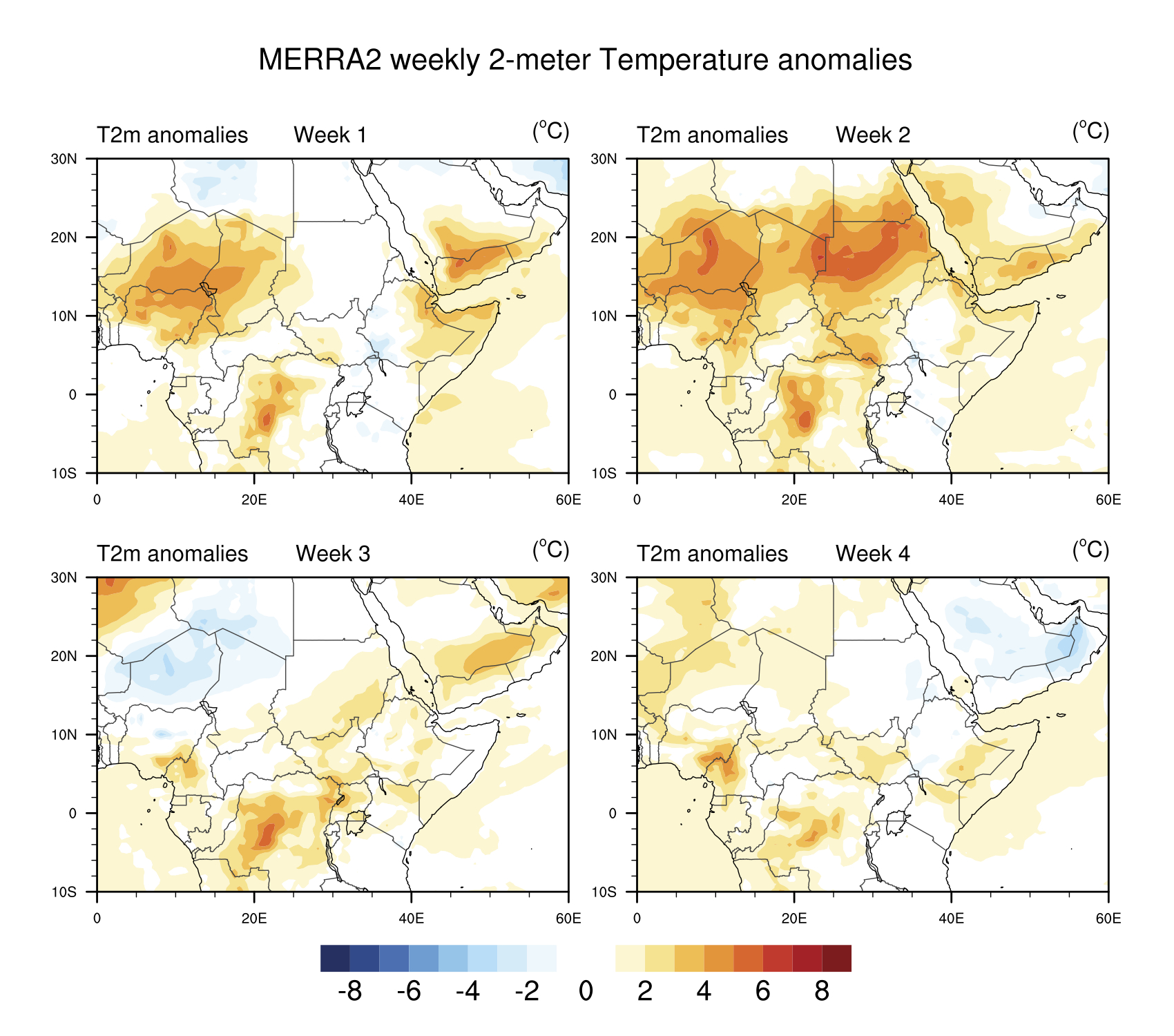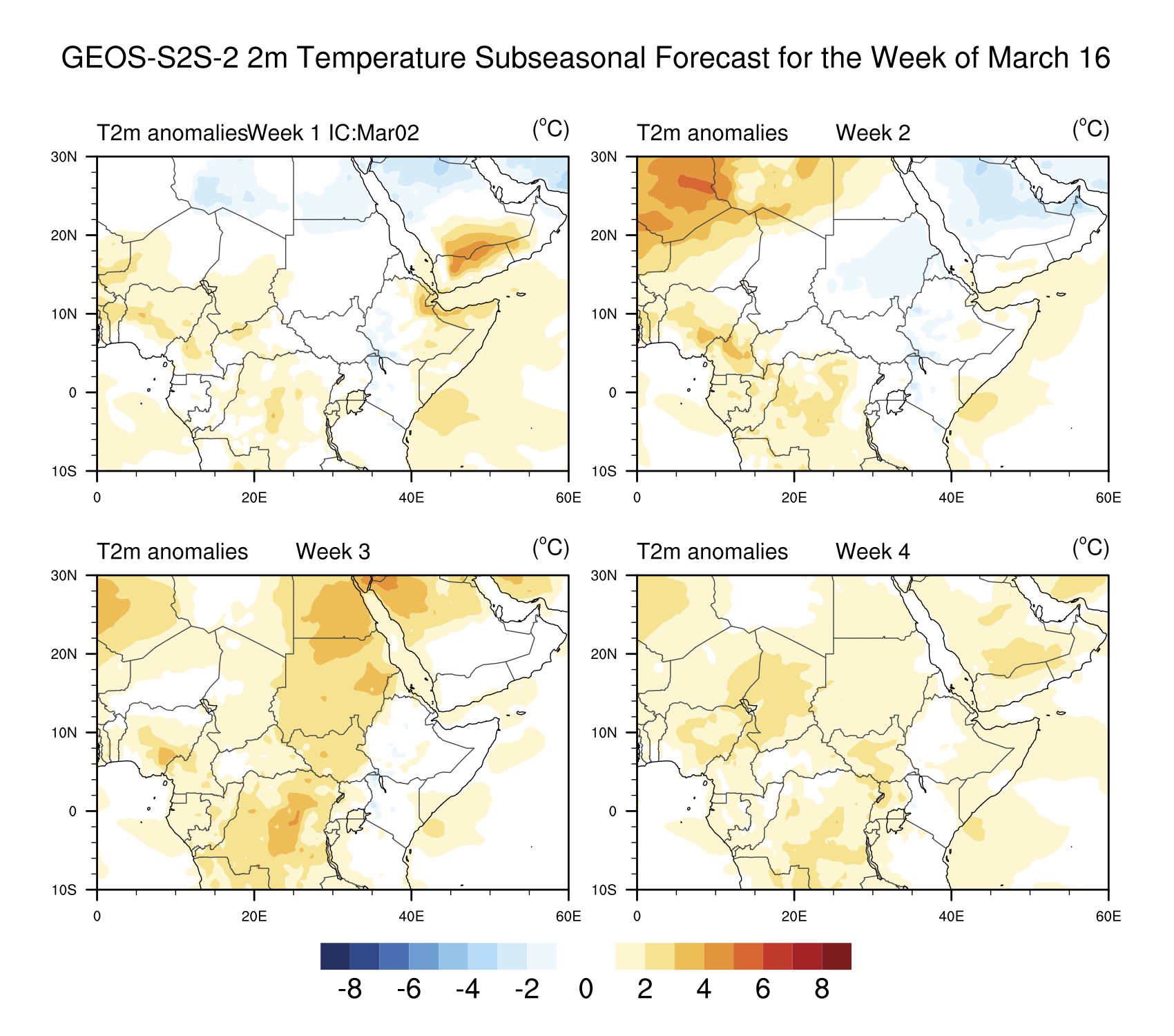March 2024 Sudan Heat Wave Through GEOS-S2S-2
South Sudan and neighboring region experienced abnormally hot weather conditions in March 2024 with temperatures reaching 45oC (Figure 1). The 2m temperature sub-seasonal forecast of GEOS-S2S-2 model initialized on February 25, 2024, accurately predicted positive temperature anomalies three weeks in advance for the week of March 15 over Sudan and South Sudan (Week 3 forecast in Figure 2). MERRA-2 reanalysis shows persistent positive anomalies in South Sudan for a few weeks in March with a surge in week 3 (see Figure 1). The amplitude of temperature anomalies in GEOS-S2S-2 model is reduced as compared to MERRA-2, but the spatial patterns are similar.




The prolonged period of abnormally high temperatures, defined as heatwaves, can significantly increase the risk of human related illness, in particular among children, elderly, and adults with underlying conditions1,3,4. Additionally, heatwaves can impact socioeconomic conditions and availability of health service facilities in South Sudan1,2,3.
The Ministry of Health and Ministry of Environment and Forestry together issued a joint public advisory on March 15 to temporary close schools for two weeks from March 181,2. The schools reopened on April 25 following a decrease in temperature and the anticipated onset of rainfall associated with rainy season.
References:
1. https://moh.gov.ss/news-details_copypress.php?id=14
2. https://www.afro.who.int/sites/default/files/2024-03/Public%20Health%20Advisory%20on%20the%20impact%20of%20heat%20on%20health.pdf
3. https://wmo.int/topics/heatwave
4. https://www.unicef.org/southsudan/press-releases/rising-heat-drought-and-disease-climate-crisis-poses-grave-risks-children-eastern
5. https://x.com/ministryssd/status/1772556985851932734?s=46&t=UZcVG-FQXYxikMdDhXlhtw


